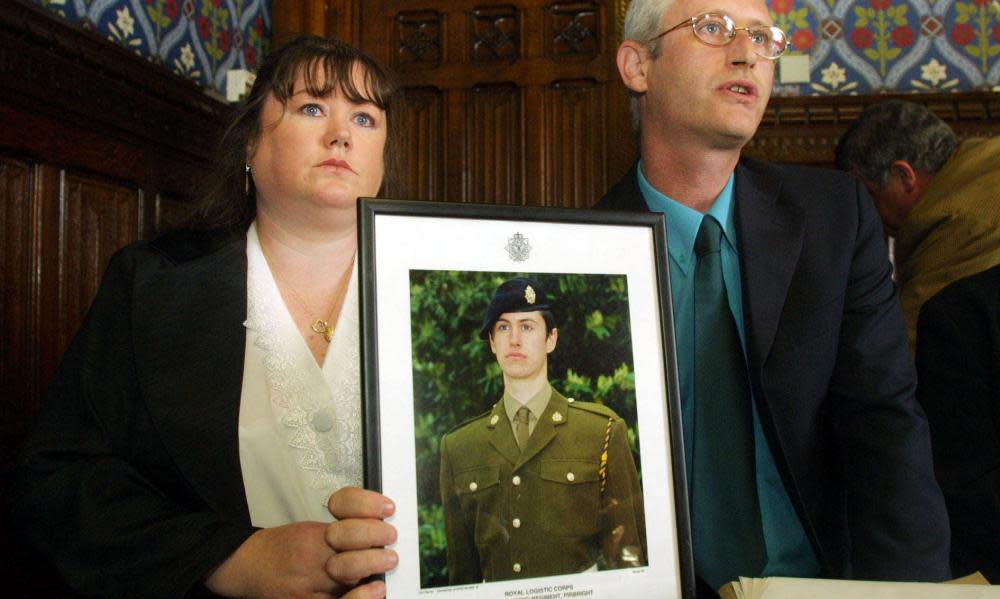Key army reports ‘hidden’ from new Deepcut inquest

An inquest into the death of a teenage army recruit has been plunged into controversy ahead of its opening this week. The Ministry of Defence has been forced to deny claims that key internal reports cataloguing life at Deepcut barracks, where four trainee soldiers died from bullet wounds over a seven-year period, will not be submitted as evidence at the inquest into the death of Private Geoff Gray.
The 17-year-old died from two gunshot wounds to the head sustained while on guard duty in September 2001. As with the three other trainee deaths, the original inquest recorded a verdict of suicide.
But the Gray family have questioned this verdict and campaigned for a second inquest after receiving thousands of pages of material from Surrey police which shone new light on life at the barracks.
Last year at the pre-inquest review, John Cooper QC, representing his family, said there was evidence of “systemic failings” and a “lack of procedure and lack of protection” for recruits at Deepcut.
Cooper added: “Here there is potentially a situation where another trainee pulled the trigger on Mr Gray.”
Deepcut has been plagued by allegations that recruits were bullied and poorly supervised. It has also been reported that soldiers at the barracks sold army-issue ammunition on the black market and that there was low morale among trainees. There were also tensions between Commonwealth and British soldiers based at the barracks.
It is expected that these will be explored in detail during the new inquest. But an anonymous letter, sent to Cooper and obtained by the Observer after an application for disclosure to the coroner, makes a series of incendiary claims about how the inquest will operate.
The letter, which was apparently written by someone with detailed knowledge of previous inquests into the deaths of recruits at Deepcut, claims: “It has been made clear that other source documents detailing the situation in 2001-03 are not to be part of the new evidence regarding the Gray statement for the upcoming inquest and that the statement structure as set out for Benton is to be maintained.”
This is a reference to Private Sean Benton, 20, who died at Deepcut in 1995, the same year as Private Cheryl James, 18. Private James Collinson, 17, was the fourth trainee to die at the barracks, in 2002.
The letter alleges that witness statements of Brigadier Christopher Coles, head of the Army Personnel Services Group, given at the inquest into Benton’s death, contained flaws and presented “no contemporaneous account of events”. It warns: “MoD is now taking a similar oblique approach for the inquest touching on the death of Private Geoff Gray.”
It adds: “The Army has boxed itself into a corner and do not wish to use the extensive contemporary documentation originating from the heart of Deepcut between 2001-03.”
And it warns that some of those who have been charged with preparing the army’s draft statement for the inquest are “stepping away” from it believing that the “chain of command is deeply embarrassed that it was regularly informed of the stresses and strains at Deepcut and deliberately choose to ignore the information”.
Any suspicion that the army is suppressing documents could prove explosive when the inquest begins on Tuesday. But the allegation has been strongly rejected by MoD lawyers. Nicholas Moss for the MoD said “there is no merit in the anonymous letter and there is no truth in the allegations”.

 Yahoo News
Yahoo News 
